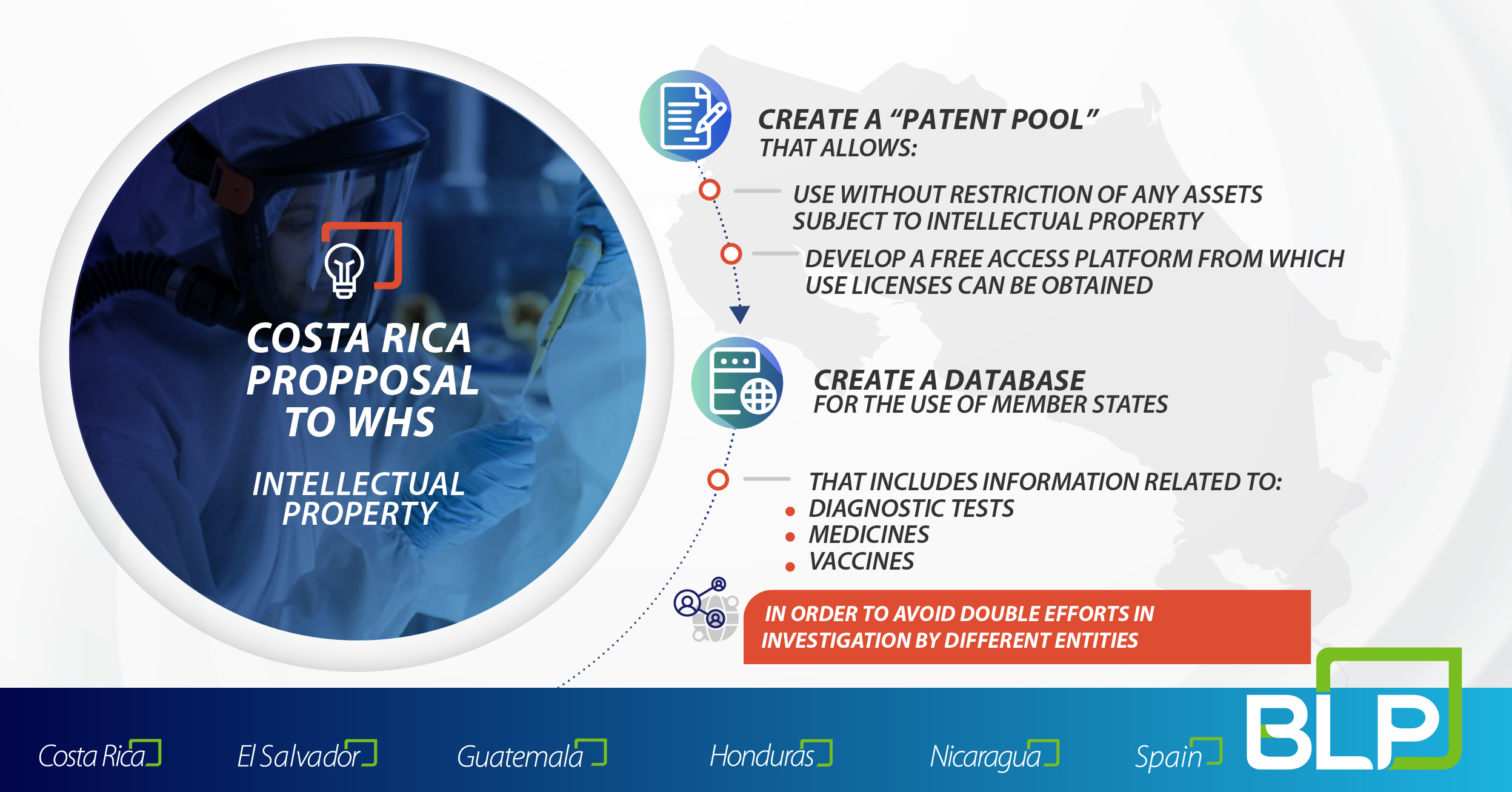Costa Rica has positioned itself as a reference in the search for solutions to the COVID-19 pandemic, specifically in terms of the accessibility of treatments and medicines for the world’s population, regardless of their purchasing power. On 24 March, the Government of Costa Rica contacted Dr. Tedros Adhanom Ghebreyesus, Director-General of the World Health Organization, to propose that he coordinate and incentivize two primary measures:
- Develop and urge WHO members to sign a Memorandum of Understanding to form what is known as a “patent pool”, i.e. collection of patents, and any assets subject to intellectual property, which can be used without restriction by the signatories of such Memorandum. The idea is to create an information and technology platform that can be freely accessed and whose technology mandatorily licensed in order to access diagnostic tests, devices, medicines, or vaccines.
- Require the Global Observatory for Health Research and Development to create a database for use by the Member States with information on diagnostic tests, medicines, and vaccines, which would avoid duplicate research efforts by different entities.
According to the applicable legislation, the Agreement on Trade-Related Aspects of Intellectual Property Rights (TRIPS) states that any Member, in formulating or amending its rules, may take the necessary measures to protect the public health of the population or to promote the public interest in sectors of vital importance for its socio-economic and technological development, which gives validity to the proposal of the Government of Costa Rica.
At the national level, the Costa Rican Patent Law states that where so required by reasons classified as extreme urgency, public interest, emergency or national security, the Executive Branch, by decree, may submit the patent or its application to obligatory license at any time, without the owner’s consent, for the invention to be exploited by a State entity or by third parties authorized by the Government.
Since the receipt of the Government of Costa Rica’s proposal, WHO has taken action to make it a reality. However, this is a sensitive issue for pharmaceutical companies and some sectors with considerable economic interests. Currently, dozens of companies are competing to find an effective coronavirus vaccine, for which a great deal of money, time, and technical and specialized knowledge is invested. Granting a patent for a vaccine would give the applicant company the right to prevent third parties from marketing the vaccine without their consent, allowing the applicant company to market it for the price it wishes and exclusively to whom it wishes. This Costa Rican initiative was born out of consideration for public health and seeks to superimpose the vital interest of emerging from the pandemic over the economic interest of a patent owner.
Although the United States and the United Kingdom have expressed disapproval of participating in such a proposal, many other countries, including world powers, have applauded the effort as a humanitarian act and have agreed to take part in it. A number have even argued that building a collective intelligence platform and equitably sharing risks and rewards in innovation does not compromise a company’s potential economic gains, but, on the contrary, if all those involved do their best, it assures that scientific development will take a giant leap in terms of technological advances, which in turn will produce greater returns in the long run.
Every country across the globe has seen their economies hit by pandemic restrictions and quarantines; every day without a vaccine equals billions of dollars lost. If one company discovers a vaccine and another company invents the best method of applying it, not only do both companies mutually benefit, but the benefit to the world’s population is also equivalent to helping save the global economy. And this is precisely what the Government of Costa Rica has envisioned and why, globally, hundreds of media outlets are talking about Costa Rica’s bold humanitarian idea.
Now, we can only sit and wait until the patent procedures are underway to learn the viability of the national proposal.



